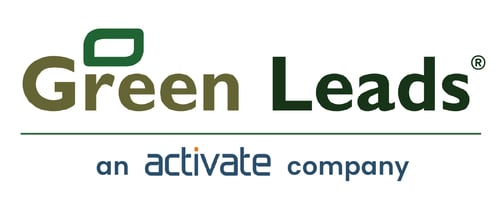What is an SDR?
A sales development representative (SDR) is a sales professional responsible for generating new leads and qualifying them for the sales team.
Most companies place a great deal of importance on sales, and for a good reason. Sales are the lifeblood of any business, and without them, a company will quickly stagnate and fail. As a result, businesses are always looking for ways to increase their sales. One popular method is to hire a sales development representative (SDR). An SDR is essentially a salesperson whose sole focus is generating new leads.
What Does an SDR Do?
If you are considering hiring an SDR, it is crucial to understand what they will be responsible for.
In short, the sales development representative job entails working with your company's sales reps and sales manager to generate new leads and get potential customers interested in your company's products or services. While this may seem like a simple task, it can genuinely be quite complex and challenging.
They work closely with the sales reps, as well as sales managers, sales executives, and other sales leaders to identify potential customers and qualifying leads and then reach out to them through outbound marketing channels, such as email, phone, and social media. An SDR typically uses a combination of phone calls, emailing, and networking to reach out to potential customers.
In many cases, an SDR will also be responsible for conducting initial calls or meetings with potential customers.
What is the role of an SDR?
An experienced and successful SDR can identify potential customers, build rapport with them, and eventually get them interested in doing business with your company. Hiring an SDR is something to consider if you want someone to help boost your company's sales and contribute to your top line revenue growth.
In many cases, an SDR will be the first point of contact between a company and its potential customers. As such, an SDR needs to be able to build rapport and establish trust quickly. In addition, an SDR must be able to effectively communicate the value of a company's products or services. Ultimately, the goal of an SDR is to generate enough interest from potential customers that they are willing to pass on to a sales team member who is responsible for closing deals.
The role of the SDR has become increasingly important in recent years as companies have started to focus more on inbound marketing methods. Instead of relying solely on outbound prospecting methods to source potential customers such as cold-calling or buying lists of leads, companies are now focusing on generating leads organically through their website and other online channels. As a result, the role of the SDR has shifted from outbound sales and generating leads to nurturing those leads and ensuring that they are adequately qualified before being passed off to the sales teams. In addition to lead generation through cold calls and other outbound methods, they may also identify business opportunities among existing customers.
In addition to being responsible for finding potential customers and getting them interested in what your company offers, SDRs often work closely with other sales team members to help close deals. However, their primary responsibility is generating new leads, which can be a full-time job in itself.
The ultimate goal of an SDR is to set up meetings or calls between potential customers and the sales team so they can close the deal.
What Is SDR Outsourcing?
Sales Development Outsourcing (SDO) is the process of outsourcing sales development activities to a third-party provider. SDO providers manage the entire sales development process on behalf of their clients, from lead generation to appointment setting. This allows businesses to focus on their core competencies while benefiting from a high-performing sales team.
Outsourcing SDR vs. In-House SDR
When it comes to sales development, companies have two main options: they can either outsource their SDRs or keep them in-house. Both have advantages and disadvantages, so weighing the pros and cons before deciding is essential.
In-house SDR is when a company hires its own employees to handle lead generation. Some companies believe that hiring an in-house SDR affords them more control over the quality of work and the sales process or that they can better build a strong team culture, as they can train and manage their team according to the company's needs.
However, one downside of having an in-house SDR team is that it can be more expensive than outsourcing, as you have to pay salaries and benefits regardless of whether or not you're generating leads. Additionally, the high costs associated with hiring and training an in-house SDR and having enough work to keep them busy all year round are serious disadvantages.
Outsourcing SDRs can be a cost-effective way to get quality sales leads, as you only have to pay for the services when needed. In addition, outsourcing firms usually have a team of experienced professionals who can provide high-quality service.
Benefits of outsourcing SDR
Outsourcing SDR is a popular option for many businesses, especially startups. The main advantage of outsourcing is that it saves on costs. You do not have to worry about hiring, training, and paying salaries and benefits. In addition, you can scale up or down your team quickly according to your needs.
There are many advantages to sales development outsourcing, including cost savings, improved efficiency, and access to best-in-class sales tools and processes. SDR providers also bring a wealth of experience and expertise to the table, which can be invaluable for businesses new to outsourcing or sales development.
Companies typically use SDRs to save on the cost of hiring a full-time sales staff. In addition, SDRs can provide flexibility in terms of the number of hours and the geographical locations they work.
For example, an SDR can work part-time in one location and then switch to another location as needed. This type of outsourcing can benefit companies with a limited budget for hiring sales staff. It can also benefit companies looking to expand their sales force into new geographical areas.
Should I outsource SDR?
Both outsourcing and in-house SDR have their advantages and disadvantages. The best approach for your business depends on your specific needs and circumstances. When it comes to sales development, there is no one-size-fits-all solution. The best option for your company will depend on your specific needs and budget.
How does outsourcing reduce costs
Many companies outsource their SDR function because it is more cost-effective than hiring in-house sales staff. While this is a critical role, it can be time-consuming and expensive for companies to handle internally.
Outsourced SDRs are typically managed by a company specializing in sales. This type of company can scale up or down the number of SDRs they have on staff depending on the needs of their clients. They also usually have extensive experience managing and training Sales Development Representatives. As a result, they can often provide a higher quality service at a lower cost than if the company were to manage its own SDR team.
When companies outsource their SDR function, they can take advantage of the provider's expertise and experience, which helps reduce costs while still providing quality lead generation and customer interest. In addition, outsourcing can free up internal resources, so companies can focus on their core competencies.
source https://www.classicinformatics.com/
How to choose an SDR outsourcing company? -
A Sales Development Rep (SDR) is key in any sales organization. When it comes to sales, first impressions are everything. That's why choosing the right Sales Development Representative (SDR) is so important. But with so many candidates, how can you be sure you're making the right choice?
There are several factors to consider when choosing an SDR, but some of the most important include:
- Are they experienced with conducting customer research and generating new leads?
- Do they have a record of success in finding prospective clients who are also qualified sales leads and effectively building a sales pipeline?
- Are they knowledgeable about your products or services?
- Do they have strong communication skills and interpersonal skills?
- Are they self-motivated and disciplined?
Answering these questions will help you identify potential candidates with the right mix of skills and experience to succeed as an SDR working with your marketing team in your organization.
How much does it cost to hire an SDR?
As the first point of contact with potential customers, Sales Development Reps (SDRs) play a vital role in the sales process and in building your sales pipeline. Because of the importance of this position, hiring a Sales Development Rep can be a significant investment for a company.
The average salary for an SDR is between $50,000 and $70,000 per year. However, some companies may offer higher wages, especially if they are located in a more expensive city. In addition to salary, companies also have to pay for benefits, such as health insurance and retirement savings plans.
When outsourcing a Sales Development Representative (SDR), it is essential to consider more than just cost. While price is undoubtedly a factor, other considerations can significantly impact the success of your outsourcing partnership. For example, you will want to partner with a company with a proven sales track record and understands your industry. You will also want to consider the size of the company and its geographical location. The company should be large enough to handle your sales volume, but not so large that it cannot provide personalized service.
Other important considerations when outsourcing a Sales Development Representative (SDR) include:
- The company's track record in sales.
- Understanding of your industry.
- Size of the company.
- Geographical location.
And finally, you will want to ensure that the company you choose shares your commitment to customer satisfaction. By considering all of these factors, you can be confident that you are making the best decision for your business.
Final thoughts
There are many factors to consider when outsourcing a Sales Development Representative (SDR).
First, it's essential to define what an SDR is. Sales Development Representatives are typically responsible for generating new leads and Qualified Sales Opportunities (QSOs) through research, outbound cold calling, emailing, and social media.
Next, you'll want to consider your ideal SDR candidate. What skills and experience would they need to have to succeed in this role?
Once you've identified the skills and experience you're looking for, the next step is to find a reputable outsourcing partner. This partner should have extensive experience in recruiting and training Sales Development Representatives, and they should be able to provide detailed metrics on the performance of their representatives.
Finally, you'll need to establish clear objectives and KPIs for your outsourced SDR team. What goals do you want them to achieve, and how will you measure their success?
By keeping these considerations in mind, you can be sure that you'll find the right SDR team for your business needs.



